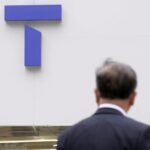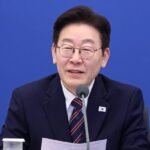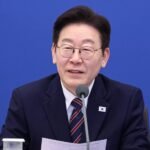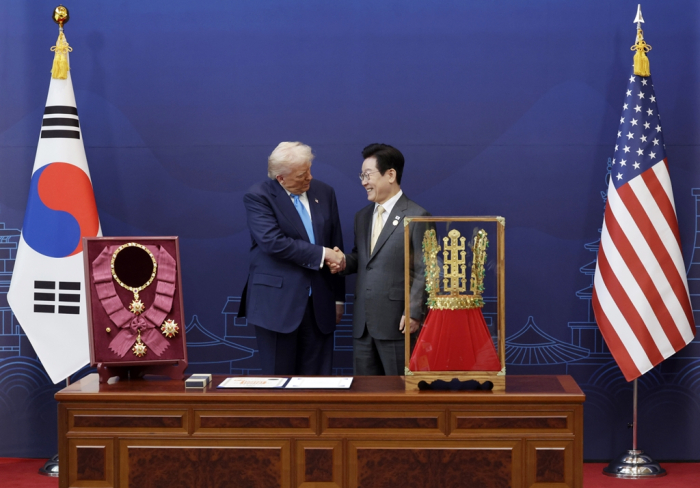
GYEONGJU – South Korea and the US reached a sweeping agreement on tariff, trade and investment terms on Wednesday, capping months of difficult negotiations that had threatened to overshadow the APEC summit and bilateral relations.
Under the deal, Seoul will invest $200 billion in cash in the US economy – part of a broader $350 billion investment framework – but with an annual ceiling of $20 billion, according to Kim Yong-beom, Seoul’s presidential policy chief.
The accord, sealed just hours after a summit between President Lee Jae Myung and his US counterpart Donald Trump in Gyeongju on the sidelines of the APEC leaders’ meeting, marks a dramatic breakthrough following weeks of deadlock.

“The $350 billion commitment consists of a $200 billion cash investment and $150 billion in shipbuilding cooperation,” Kim said at a media briefing. “It’s similar in structure to Japan’s $550 billion financial package with Washington, but we imposed an annual cap to protect Korea’s foreign exchange market.”
Kim said that Seoul’s investment pace will move in tandem with project progress, ensuring the outflow of funds remains within “manageable limits” for Korea’s financial and currency markets.
MASGA PROJECT TO BE LED BY KOREAN FIRMS
The shipbuilding partnership, dubbed the MASGA, or Make American Shipbuilding Great Again, initiative, aims to revitalize the US shipbuilding industry. The initiative will be led by Korean companies and include both direct investment and guarantees, according to Kim.
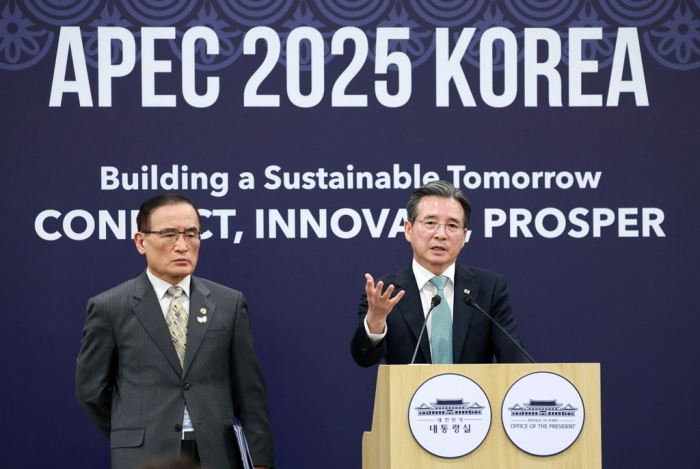
The US government has agreed to expedite land leases, utilities and regulatory approvals for participating Korean firms, while prioritizing Korean-led consortia and project managers, he said.
On the politically sensitive issue of agriculture, the presidential policy chief stressed that Seoul “completely defended” its market from further liberalization.
“We have agreed not to open any new agricultural sectors, including rice and beef,” he said. “Instead, both sides agreed to strengthen cooperation and communication on quarantine procedures.”
TARIFFS ON KOREAN AUTO IMPORTS TO BE LOWERED TO 15% FROM 25%
As part of the tariff and trade package, the US will cut its tariffs on Korean automobiles to 15% from 25%, aligning it with the reciprocal rate that has been in effect since July.
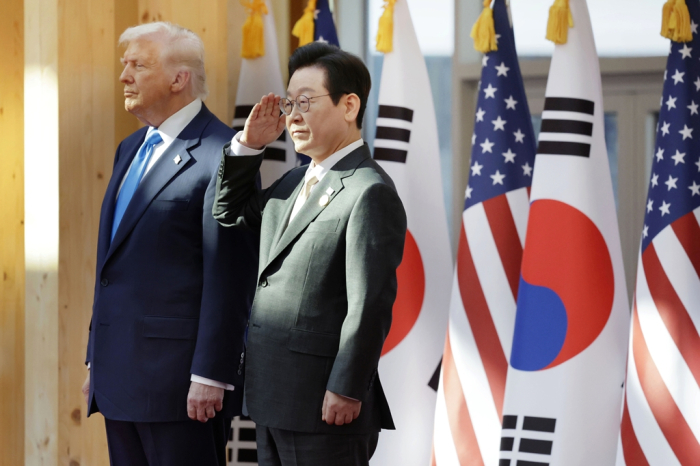
Pharmaceutical and wood products will receive most-favored-nation treatment, while aircraft parts, generic drugs and non-US-produced natural resources will enjoy zero tariffs, Kim said.
Semiconductors, a linchpin of Korea’s export sector, will face tariffs “no higher than those applied to Taiwan,” he said.
The tariffs deal also includes strict commercial safeguards.
“Only commercially viable projects with guaranteed returns will proceed,” Kim said. “Until investment principal retrieval, profits will be split 50-50 between the two countries, with flexibility to adjust if we are unable to retrieve principal investment within 20 years.”
Kim emphasized that the agreement includes “provisions to adjust investment timing and size” in case of currency market volatility.
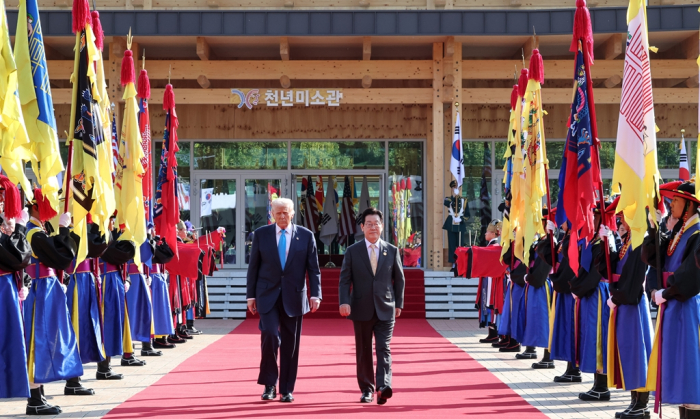
The overall investment pledge runs through January 2029, though disbursements will stretch over a longer horizon to mitigate the foreign exchange market impact.
LEE, TRUMP DISCUSS NUCLEAR-POWERED SUBMARINES
At the Lee-Trump summit on Wednesday, the Korean president proposed that South Korea secure nuclear fuel to power nuclear submarines – a longstanding security ambition for Seoul.
National Security Adviser Wi Sung-lac said at the media briefing that Trump expressed “understanding” of Korea’s need for such capabilities amid North Korea’s accelerating naval nuclear program.
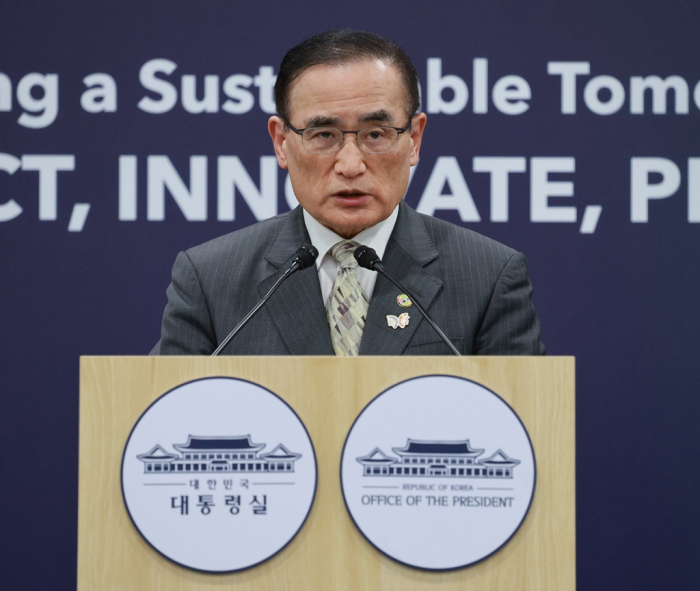
The two sides agreed to begin follow-up consultations, Wi said.
Lee told Trump that enhancing the alliance’s defense posture, including advanced naval assets, would be essential for regional stability.
Trump responded that “given the changing security landscape, the US recognizes South Korea’s strategic requirements,” according to Seoul officials.
The Gyeongju summit between Lee and Trump – their second in two months – capped weeks of high-stakes diplomacy ahead of the APEC leaders’ meeting, solidifying what officials in both capitals called “a pragmatic, fair and forward-looking partnership.”

